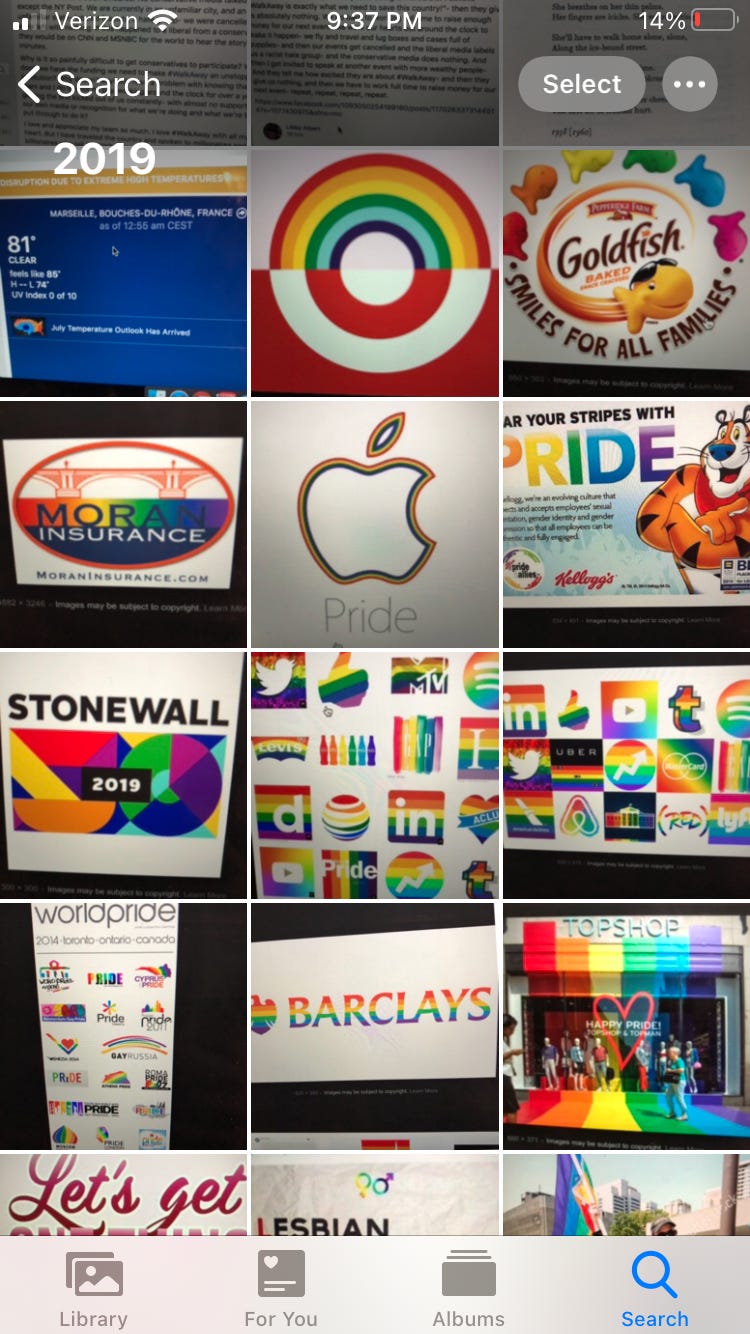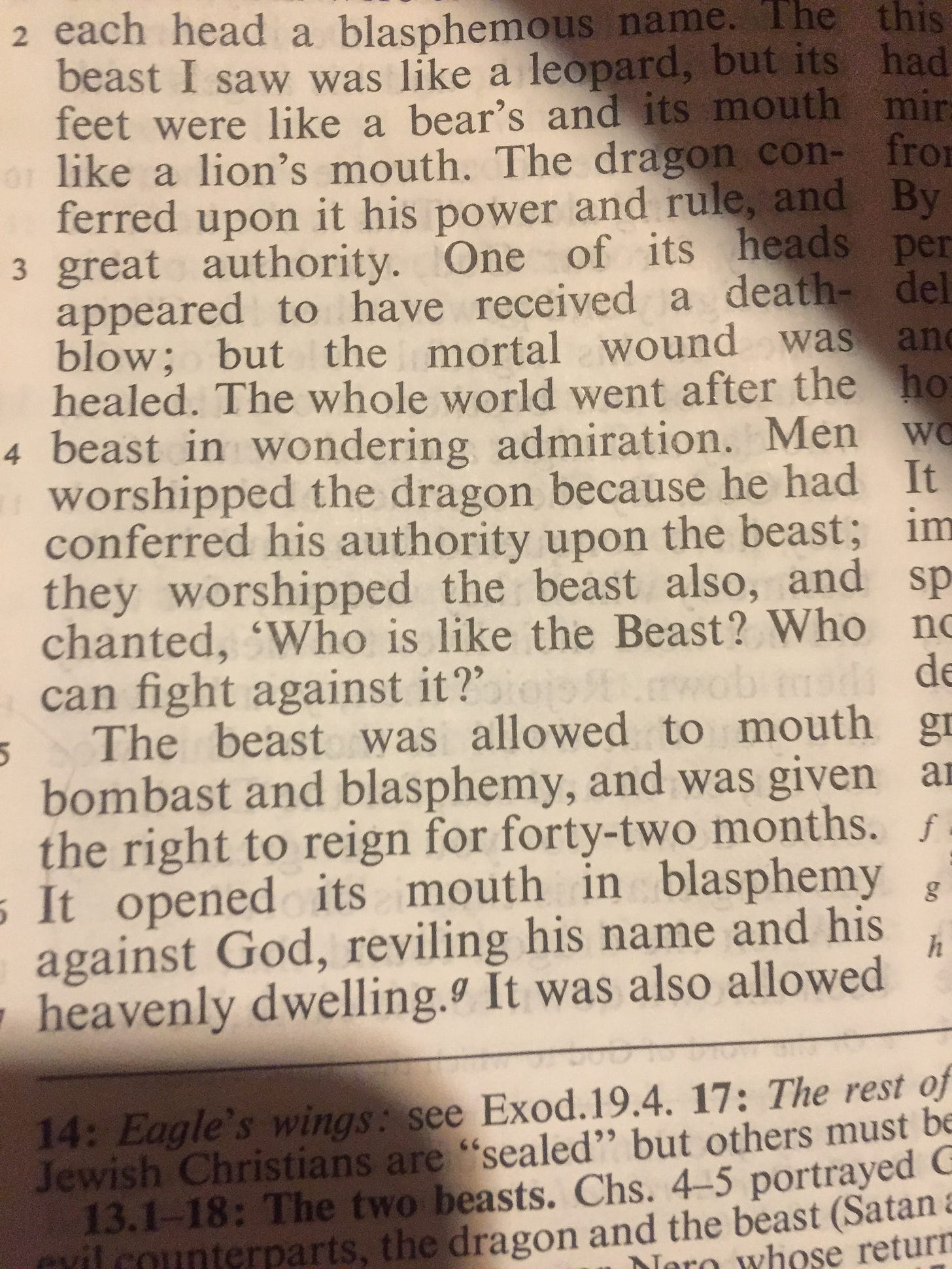On Friendship, Debt, Woke And Love
How "Virus" Debt" And "Woke all struck me as being animated by the same hungry ghost.
“Why?”
Hark the entreaties of the broken
Souls who have borne usury’s curse,
Debt-money’s train of death and woes.
The huddled betimes scarce awoken
Soon to find wit and will aburst,
The hour, impending, no one knows.
The meek get ready to inherit the earth,
The earth prepares to receive the sky,
The youth anon will discover a future,
The wise, in love, smile – and now you know “Why?”
– Richard Kotlarz
[The Iraq War And The Rest Of The American Revolution]
”(1) What is the procedure by which dollars are created? – Dollars are created in the moment a banker “writes the check” to, or credits the account of, a person who is in the process of borrowing money from a private bank. The principal sum of the “loan” is newly-created money.
”(2) How do they enter into circulation? – These newly-created dollars enter into circulation when the person who takes out the loan spends the money for whatever purpose the loan was taken out for.
”(3) Who controls the process? – The money creation process is controlled by a private banking system.
”In Col. 4, “The Problem of Interest,” I made what to many must seem to be, at least a bold, perhaps an outlandish assertion that the attachment of a compounding “interest” fee to the basic private bank loan transaction by which our money is created and enters into circulation constitutes “the very engine of the economic trauma we are facing at the present time.”
“Money in ancient Greece was called “nomisma”, because it attained its status via the agency of the “law,” for which the Greek work is ”nomos.” This was affirmed by Aristotle when he stated,“. . . and this is why it has the name nomisma – because it exists not by nature, but by law (nomos) . . .” Plato demonstrated an acute awareness of the dangers of precious-metal money, and specified a nomisma currency for his mythical Republic.
“In the Greek city-states, the power to coin money was in the hands of a political authority that was linked to the temple cult of a favored god. These cults, in turn, often operated internationally as virtual bankers. A division began to emerge because the civil authority (which was tied to the residents of one particular territory) found that it often had different interests that the temple cults (who were more internationally oriented in their perspective). As a result of this struggle for the control of money, resulting in extreme cases in military conflict, an early separation of religion and the state emerged.”
A few outtakes of some of his writings. (His website linked above.)
Richard Kotlarz. An epic human being, the most down to earth and the most dazzlingly brilliant;
His "poetic space” was the true history of money, but not only the factual history—the lost and even spiritual history.
I called him “the money whisperer.” He was invited by high up banking people to have top secret talks about money, as if they felt he might be aware of what it wanted, what it was going to do.
All this was over my head, but I listened and took notes. I wanted to understand it.
He was my very close friend and soul mate, for fifteen years.
He died last spring, Feb 28, 2022.
I was, on that day, moving out of yet another place in upstate New York when I got the call. And I remember, moments later, being faintly rebuked by my soon to be ex housemate for taking out a kitchen spoon that was not mine. And I remember explaining in that desperate way you have to do when a woman has decided to micro-shame you, that I was only going to make a pile of things that were possibly mine, that we would discuss later.
Darci, Richard’s wife, and the love of his life— we coined a term for this the other night, laughing a lot. “Richard called those kinds of things feminine traps,” she said. “Like when women put out hand towels but you’re not supposed to dry your hands on them.”
I took this photo of Rich in my kitchen in New York, Dec. 2, 2017.
I see Lewis is in the photo too, that makes me happy, because Lewis loved Richard.
This is one of only two photos I have of my friend.
When I was told he had died, the person who called me made sure I was sitting down first, and I thought that was such a kind and classy thing to do. Make sure I was sitting. How many times have you learned digitally, that somebody you loved had died. Eric Coppolino will understand what I mean when I say we can not process death in the digital realm. We need voices and faces, we need to hear and see. To be told in person or on the phone. And these moments are forever etched in our memories.
During Covid, Richard called me every night, from the Veteran’s home where he then lived, in Minneapolis. I remember he spoke of the constant hand washing and the soap dispensers “ejaculating” soap all over the floors, causing the residents to slip and slide. I would be laughing but then in the next moment he’d get serious.
“There are men in here who’ve let platoons, in wars, and they can’t even be trusted or respected now to walk from one room to another. It’s appalling.”
Richard was a veteran of the Vietnam war. One Christmas, (he loved Christmas) he told me they’d decorated a tree with bullets in Saigon. And they had peanut butter and jelly sandwiches.
2020.
Suddenly, Covid was upon us like hell itself and we were caught off guard. We were being shelled. But we had that phone.
“Celia! I got you!” he would say warmly and brightly when I answered the phone. And we’d talk for hours.
If he left the Veteran’s home, to come visit, say, they’d place him in quarantine for two weeks when he came back, and not let him near his things. He always made the best of things, unlike me. We talked about spirits a lot, like how the spirit of bureaucracy is behind Covid and it’s not to be taken lightly. He did wind up coming out for Thanks giving, his favorite holiday, last year, and it was wonderful.
Covid in the Veteran’s home had changed him. We all became something other than what we were before. Feels to me like we have all been subjected to crushing plates, that keep trying to crush us, and we stay intact, but that’s about it. What is this “thing” trying to crush us and how do we counter it?
Friends.
We would read to each other. Sometimes Psalms. Sometimes Russian stuff. Sometimes books we felt we should understand like The Invisible Rainbow. He was such an extraordinary story teller that no matter what he was telling me, I felt I was in a novel. He loved trains and always sent me hand written cards with trains on them.
I could always lean on the warm hearth of our friendship and if ever I felt safe, it was because he was telling me a story. And the stories were always about redemption. Why somebody thought to have no redeeming qualities, did after all. He often spoke at length of how misunderstood Robert E. Lee was, with all kinds of fascinating details as though it was happening there and then. Mostly, all I remember now is what Lee said at the end, when he surrendered, according to Richard:
“I didn’t surrender to the Union, I surrendered to Lincoln.”
I believe that our conversations are hanging somewhere in a distant part of the galaxy.
He used to say that once you love somebody it is not possible to no longer love them, that this is not something that can die. He also used to say that no matter what we do, we cannot “destroy the planet.”
Our friendship never lost its timbre, or frequency, like so many did, “during Covid.” That strange cold damp thing that came in everywhere. What was that? Like we just didn’t even know each other anymore, or care. I think they did something to the frequencies of our very hearts. I know I felt subtly altered. .
Dulled and disassociated. Maybe shell shocked.
But Richard and I were not affected.
I got to speak with his wife Darci, the other night, and we had a telephone memorial, filled with tears and laughter. Prior to that I had refused to face it, whatever facing it meant. There was never a single moment when I felt anything except kindness and love from this person, who some people believed was the re-incarnation of Emerson. They did look uncannily alike.
One night at a pub in New York I asked him to talk to me about Emerson. He leaned across the table, looked around, and said somewhat furtively: “He was in so much despair when his wife died that he dug her out of her grave not once but twice.”
He knew these kinds of things.
One of Richard’s topics was how men of that era loved their wives and how nothing was more important that repairing what had been torn apart between men and women. Who did it and why we may have disagreed about but we spoke of it all the time.
When he spoke about Darci—-I just never heard anybody speak on that level. It was wonderful to hear. They were married, divorced and re-married a couple of times I think. He just loved her so much. And she loved him so much. And when I speak to her, I hear his voice and his stories, it’s like he’s right there.
Why do I tell these random stories? I’m trying to stitch the fallen world back together! Because we were so human, once upon a time. Now we’re beginning to resemble people who have less heart. Because we are exhausted.
I met Richard at a conference centered around the idea of reviving the American transcendentalist movement, in Concord Mass, in 2006. We went over our first exchange many times over the years but something along these lines:
He said to me: “If you understood the story of money…” I can’t get it right, the second half of the sentence…he would never say “…then you would understand AIDS.” He would never speak from “above.”
But here was the point: He had studied and seen through the monetary system; I had studied and seen through “HIV-AIDS,” and we put these two things together, like putting two cats in a room, to watch what they would do.
Let me try to keep this very simple, though we chiseled away at it for so many years:
My part:
HIV “diagnosis” (which was not a diagnosis of anything beyond “HIV” as ginned up through its "diagnostic technologies) placed a person in debt to an illness they did not have. They were told they would get it, at some unspecified time in the future. (Cruel and controlling. Usury.)
Richard’s part:
Usury and Interest: “…the very engine of the economic trauma we are facing at the present time.” When he talked about the grotesque idea that babies are born into “debt” was the only time I heard him really angry.
So I told him: “Debt. “Virus.” Same thing. Do you see?”
"He would say, “Almost.”
The occasion for this post is that I was asked earlier today if I would mind trying to articulate my objection to “woke.” Why is it not what it purports to be?
I suddenly realized that it was the same thing Richard objected so fiercely to in the story of money, and what I have railed against in “HIV-AIDS.” When I say the same “thing” I mean the same spirit.
And what spirit is that?
Debt. In German, and Swedish, the word for “debt” and the word for “guilt” are the same word: Skuld.
“Woke” is (to me, to my soul’s understanding) a political and corporate mega-trap that ensures eternal debt.
Nobody ever gets out of debt, to it. Why?
Because it must live, and to live, it must eat;
And what does it eat?
It eats your supposed badness as it dictates said badness to you by way of global corporations and media berating you, (us) in a never ending cacophony of standardized, mass produced accusations.
Put simply, you can never cease to be emitting moral failings, such as racism, misogyny, transphobia etc. (I’m not sure “homophobia” is even on the list anymore.)
IT, by contrast, can trash Christians and conservatives all day long as barely human and nobody’s permitted to become offended or at least, nobody can ever expect an apology, or some kind of firing or canceling drama.
It's not interested in sins that have a life-span but expire. A person can be wrathful, then repent and change. A person can be adulterous, but regret it, atone and change.
With Woke, there is no getting out of debt. The whole thing wants to keep spiraling; It delights in people messing up, stumbling, saying things that are bad. This way it gets to LIVE. It never wants to understand or forgive or redeem anybody.
What is a friend?
A friend is somebody who does not issue shame. You do not have to explain yourself, or get out of “debt.” A friend knows who you are.
Richard put it like this, as I told you the other day, when they brought him to the Times Square Debt clock with all its spinning numbers of the “national debt—”very bad news, of course. The documentary film makers asked him what he saw.
He said: ‘Everything we think about when we are not thinking about love.”
Ok, so what about when I accuse Fauci of crimes against humanity? That’s not very loving.
Truth be told I always accused a mentality, structure, system—not an individual, prior to recently being asked to address him as an individual.
I’m becoming weary.
Recently a friendship of 40 years died a very sudden death. I felt the spirit of “woke” come in and it happened over the subject of Russia/Ukraine/Putin.
I used to be somebody who fought and struggled to be understood. Now I don’t even want to be. I just want to stop trying.
I end it like that (finger snap.)
I take the position that if somebody shames you they can’t be your friend. If somebody corrects you, they can certainly be your friend. But wanting you to feel bad? No way.
The genius Pete Townshend wrote it decades ago, but I didn’t get it, then, (age 9) even though I listened to it over and over:
“I don’t need to fight
to prove I’m right.
I don’t need to be forgiven.”
If this sounds arrogant, or aggressive, or not soft and diplomatic, I’m just trying to stay alive. Like we all are.
And I don’t want to explain myself to anybody ever again.
I’d rather be discarded.










I'm just trying to say I am WILLING to be rejected, hated, misunderstood castigated, behind my back, but NOT willing to explain myself anymore. Is that what W. Reich called "armoring?" Or is it maturity? I think it's clinical exhaustion.
People can even accuse me of thinking retroviruses are real or any other beastly positions. You can't win anyway.
Thank you for sharing Richard with us, Celia. The picture of him with Lewis slayed me.
So many tender gems in here. The Emerson anecdote chilled me and will no doubt accompany my thoughts whenever I encounter his words.
His reflections on Vietnam reminded me of the searing guest piece I recently published by a recently departed Vietnam vet:
• “My War”: Missive from a Fallen Veteran (https://margaretannaalice.substack.com/p/my-war-missive-from-a-fallen-veteran)
I am sorry you have lost a 40-year-long friend, Celia—not to death, but to menticide, which is in some ways sadder. You are wise to protect your heart. They are the lost. We must grieve and let go until—if—they awaken from their lobotomized state.
For those of us who have escaped the mental contagion, let us not desert one another 🤗